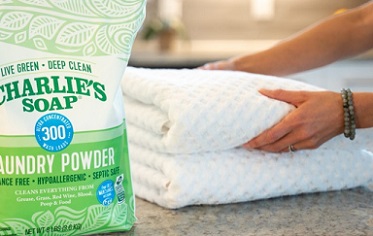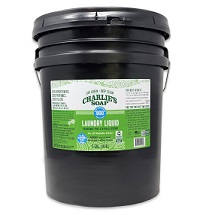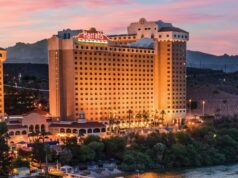 WASHINGTON, D.C.—Its most recent version was updated in February 2015, but the EPA’s Safer Choice Standard remains a go to standard for suppliers seeking a Safer Choice label for their products. According to EPA, “When consumers see the Safer Choice label on a product, they can be confident that the ingredients have been through a rigorous EPA review. The label means that EPA scientists have evaluated every ingredient in the product to ensure it meets Safer Choice’s stringent criteria.” In addition to meeting stringent safety criteria, every product with the Safer Choice label has met high standards of performance. That means the product really works.
WASHINGTON, D.C.—Its most recent version was updated in February 2015, but the EPA’s Safer Choice Standard remains a go to standard for suppliers seeking a Safer Choice label for their products. According to EPA, “When consumers see the Safer Choice label on a product, they can be confident that the ingredients have been through a rigorous EPA review. The label means that EPA scientists have evaluated every ingredient in the product to ensure it meets Safer Choice’s stringent criteria.” In addition to meeting stringent safety criteria, every product with the Safer Choice label has met high standards of performance. That means the product really works.
“If your product is not cleaning, it does not matter how green it is,” says Taylor Sutherland, President of Charlie’s Soap, a maker of products ranging from surface cleaners to liquid and powder laundry detergents. “Some of our products, including our laundry liquid, laundry powder, kitchen & bath household cleaner, and laundry pre-spray, are recognized by the EPA as Safer Choice Certified.”
About 2,000 products qualify to carry the Safer Choice label and new products are always being added.
A product is only allowed to carry the Safer Choice label if each ingredient is among the safest in its ingredient class. Additionally, the product must meet safety criteria and qualify as high-performing and be packaged in an environmentally friendly manner. Some consumers want to know which chemicals are in the products they use so, as a condition of labeling, all ingredients must be disclosed either on the product or the manufacturer’s website.
“We searched long and hard and settled for Safer Choice,” adds Sutherland, regarding his company’s search for an appropriate eco-label. “We try to minimize the introduction of chemicals throughout the whole manufacturing process.”
‘Green & Non-Green Versions’
Sutherland says hoteliers need to watch out for companies hawking both green and non-green versions of their cleaning products. “A lot of brands have a regular version and a green version,” he says. “It makes you wonder what is in the original version.”
What is in Charlie’s Soap is a blend of natural-based surfactants (detergents) derived from renewable plant oils, salts, and water (laundry liquid) or pure washing soda (laundry powder). Real soaps are made from heating a variety of oils treated with caustic soda (lye) or pot ash. Real soaps do not bind to water very well and thus tend to leave a residue.
It is that residue that sticks to clothes and to the insides of a washing machine. In fact, when first advising the use of its laundry products, Charlie’s Soap recommends adding its laundry detergent without a load of clothes at least once, possibly with some old rags, and then running the machine. “Fabric softener is difficult to get off,” Sutherland says.
On its website, Charlie’s Soap lists the following to avoid when purchasing laundry detergent: abrasives, perfumes, dyes, brighteners, chlorine, preservatives, enzymes, clays, lye, phosphates, and bleach. Of course, animal testing should not be conducted. Charlie’s Soap is also biodegradable and free of inorganic phosphates, hazardous solvents, and harmful surfactants.
Sensitivity to Chemicals is Common
In the United States alone, about one out of four travelers report being sensitive to chemicals. Those sensitive could also be working in your hotel or laundry room. According to Charlie’s Soap, its products are healthier for guests, janitorial staff, and other hotel employees.
How pervasive are natural cleaners in the hotel industry? According to Greenview’s 2022 Green Lodging Trends Report, which is based on data received from about 27,000 hotels across 54 countries, 62.6 percent of all participating hotels use green cleaning products (with exceptions for heavy soiling). According to Greenview, the higher the STR chain scale, the likelihood of using green cleaning products is much greater—luxury hotels at 93.7 percent, just 2.8 percent for economy hotels.
 Sutherland says Charlie’s Soap is just starting to catch on in hospitality but is well represented in the commercial laundry space. The company has a group of products appropriate for larger-scale hospitality operations in its Charlie’s Professional line.
Sutherland says Charlie’s Soap is just starting to catch on in hospitality but is well represented in the commercial laundry space. The company has a group of products appropriate for larger-scale hospitality operations in its Charlie’s Professional line.
When asked if his company’s products are priced comparable to those typically found in hospitality, Sutherland said wholesale pricing is very competitive. “Ask for wholesale,” he says. “We also have business clients on Amazon.”
Additional Purchasing Advice
When asked what hoteliers should watch out for when considering green cleaners, Sutherland said, “The biggest red flags are the ones that take out active ingredients—or use less of it. Be on the lookout for greenwashing,” he says. “Any detergent that has a fragrance is boldly putting something on what you are washing. They are creating gunk on what is washed.”
“The biggest thing you do not need to give up by going green is efficacy,” Sutherland emphasized, adding that not all customers are alike when it comes to water chemistry. “Some might need our booster for hard water, for example,” he says.
Glenn Hasek can be reached at greenlodgingnews@gmail.com.







